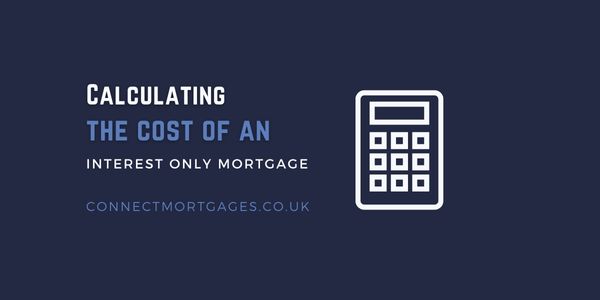With an interest-only residential mortgage, you pay only the interest on the loan each month. The capital borrowed is repaid at the end of the mortgage term. Interest-only mortgages offer several options. For example, if the property sale is planned as the repayment method, this may require specific circumstances. Depending on the lender, these could include low loan-to-value (LTV) ratios, significant equity, high-income multiples, or buy-to-let purposes.
The total amount you can borrow is usually based on a multiple of your earnings. However, eligibility for an interest-only residential mortgage depends on more than just income. Factors such as the property’s value, the loan amount, your financial situation, and the lender’s requirements also play a role.
Several factors need careful consideration if you are considering an interest-only residential mortgage. These mortgages allow you to pay only the interest portion of your monthly repayments. This can provide more flexibility in your budget.
It is important to understand the risks involved. With this type of mortgage, the full loan amount will still need to be repaid at the end of the term. Failing to plan adequately could lead to financial difficulties.
This guide outlines the advantages and disadvantages of interest-only residential mortgages. It will help you make informed decisions and plan your finances effectively.
Can I make a joint application for an interest-only residential mortgage?
Can I get an interest-only mortgage with bad credit?
Yes, you can get an interest-only mortgage with adverse credit. However, it is recommended that you consult a mortgage broker to help you source a lender that will help you.
Calculating the cost of an interest only residential mortgage

The interest rate of an interest-only mortgage is generally lower than the interest rate for a repayment mortgage. This can result in considerable savings each month on your mortgage payments.
However, it would be best to remember that interest rates are not fixed and will increase or decrease depending on economic factors or market conditions. Therefore, calculating the cost over time is essential to ensure you are not overpaying interest on your loan.
Benefits of an interest only residential mortgage
An interest-only mortgage offers several advantages for borrowers. These benefits include:
- Lower monthly payments: As mentioned, interest-only mortgages typically have lower interest rates than traditional loans. This allows you to reduce monthly payments and free up more of your monthly budget.
- Flexibility: An interest-only loan also offers more flexibility than a traditional loan, as you are not required to pay off the principal amount of the loan. You can also make additional payments when you have extra funds available.
- Potential for Higher Investment Returns: Borrowers can realise higher investment returns over time by keeping more cash available.
- Improved Cash Flow: Homeowners have more cash available since their payments are lower than a traditional mortgage.
While there are some notable advantages to an interest-only mortgage compared to a capital repayment mortgage, the disadvantages should not be overlooked.
These include:
- More interest paid Long-term: With an interest-only mortgage, you typically pay more than a repayment mortgage. This is because the principal amount you pay interest stays the same throughout the term.
- Payments without reducing the balance: Every month, you only make payments to cover the interest, meaning you will still owe the total balance at the end of your payment term.
- Term shortfall: If your repayment plan falls short, you may be forced to sell the house, secure another mortgage or face repossession after your term.
Should I get interest advice only residential mortgages?

How a lender accesses your interest-only application depends on different factors; it can also be assessed differently depending on the individual lender’s criteria. We urge you to seek mortgage advice to ensure that you make the best decisions regarding the repayment of your interest-only mortgage. You should only seek advice from a mortgage broker with authorisation from the Financial Conduct Authority (FCA).
Strategies to manage interest and repayment risk
When considering interest only residential mortgages, taking steps to manage interest and repayment risks is essential. Once the lender has approved your mortgage application, you must check that your strategy to repay the amount borrowed at the end of the mortgage term is still right for you. By planning and managing interest and repayment risks, you can ensure that your interest-only loan is a wise decision for your finances.
What repayment plans are available to repay the mortgage?
If you want to be eligible for an interest-only mortgage, then your lender must understand and approve the repayment plan you have in place. In addition, your payments will need to pass their affordability criteria if they will accept them as part of payment towards the capital loan.
You could build up enough funds to repay the capital loan with the following options:
- Cash saved in a savings account or ISA
- Stocks and shares ISA
- Pensions
- Investment bonds
- Other properties or assets.
This depends on the lender’s criteria, as it may not be acceptable to all lenders. Be cautious about using an inheritance or bonus to pay off your mortgage. This may not be a sound financial choice. Your lender may review your repayment plan regularly. For example, using your savings before finalising the mortgage could lead to serious issues.
Interest-only residential mortgages can lower monthly payments and improve cash flow. However, it is essential to understand the risks and challenges linked to these loans before deciding. By considering all factors carefully, you can make an informed financial decision.
Contact a mortgage adviser today for further details about interest-only residential mortgages or to start your application. They can offer the advice and tools needed for a successful application. With their support, you can make the right choice for your financial future.
Thank you for reading our “Interest Only Residential Mortgage | Planning Your Finances ” publication. ” Stay “Connect“-ed for more updates soon!







